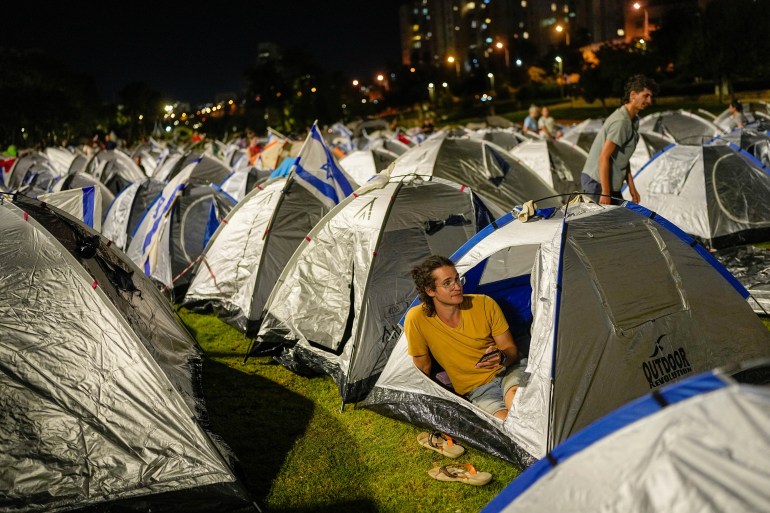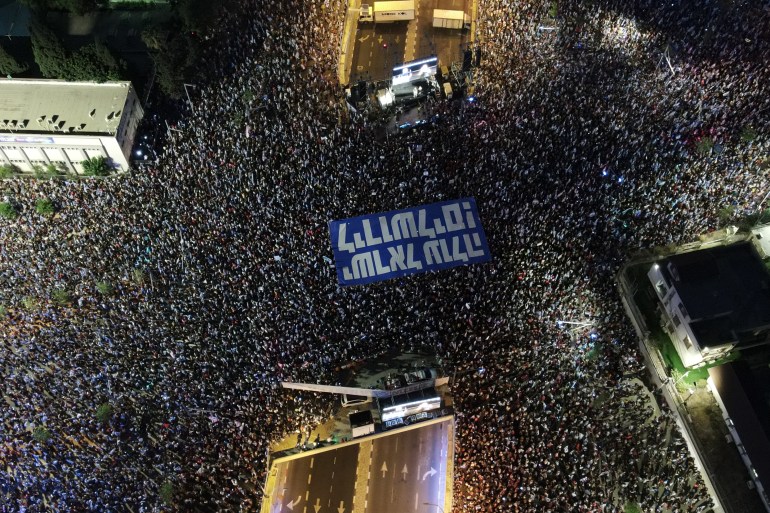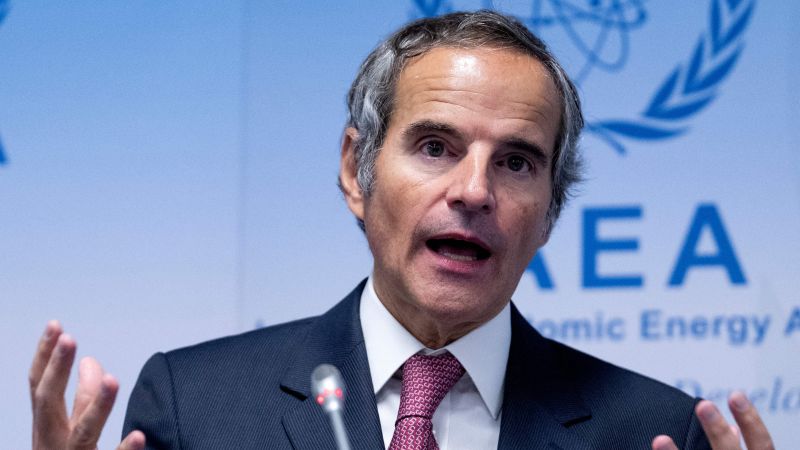Huge crowds march in Israel as vote on judicial overhaul nears
Tens of thousands of Israelis have marched into Jerusalem and more protesters have taken to the streets in Tel Aviv in a last-ditch show of force aimed at blocking Prime Minister Benjamin Netanyahu’s contentious judicial overhaul plan.
The protests on Saturday came as more than 100 of Israel’s former security chiefs signed a letter pleading with Netanyahu to halt the legislation and thousands of additional military reservists said they would no longer report for duty in a protest against the plan.
The Israeli parliament, or Knesset, is set to hold a final vote on Sunday and Monday on the bill that would limit the Supreme Court’s powers to void what it considers “unreasonable” government or ministerial decisions.
Critics view the legislation as a threat to Israel’s democracy.
In Jerusalem on Saturday, marchers turned the city’s main entrance into a sea of blue and white Israeli flags as they completed the last leg of a four-day, 70km (45 miles) trek from Tel Aviv to Israel’s parliament.
The group, which grew from hundreds to thousands as the march progressed, were welcomed by throngs of cheering protesters before they set up camp in rows of small white tents outside the Knesset before the expected vote.
“Democracy is not as certain as it used to be,” said Ido Golan, a protester from central Israel who joined with his partner and two young children, one on his back in a baby carrier.
“It’s very important for us and also for them to know we did what we can to save the democracy.”

Meanwhile, hundreds of thousands flooded the streets of the coastal city of Tel Aviv, the country’s business and cultural capital, as well as in Beersheba, Haifa and Netanya.
“Democracy or revolution! Respect existence or expect resistance!” chanted protesters, many wearing shirts with “Democracy” printed on them.
“The government is not listening to us, it means it’s the beginning of a new era, a bad era,” protester Idit Dekel, 55, told the AFP news agency. “For me it is catastrophic. It’s the beginning of something we have never experienced before,” he added.
Al Jazeera’s Mohammed Jamjoom, reporting from Tel Aviv, described Saturday’s protest in the city as “massive” and said demonstrations also took place in 12 other locations.
“Now, Netanyahu says he is committed to continue with these plans and that once this bill passes, he will then step back and try to seek compromise with opposition parties. But that’s not good enough for the thousands upon thousands of people that are out across Israel today who say this is a real threat to democracy,” said Jamjoom.
‘Fatal blows’
Netanyahu and his far-right allies claim the overhaul is needed to curb what they say are the excessive powers of unelected judges. But their critics say the plan will destroy the country’s system of checks and balances and put it on the path towards authoritarian rule.
Joe Biden, the president of the United States, has also urged Netanyahu to halt the plan and seek a broad consensus.

The proposed overhaul has drawn harsh criticism from business as well as medical leaders and a fast-rising number of military reservists in key units have said they will stop reporting for duty if the plan passes.
An additional 10,000 reservists announced they were suspending duty on Saturday night, according to “Brothers in Arms,” a protest group representing retired soldiers.
More than 100 top former security chiefs, including retired military commanders, police commissioners and heads of intelligence agencies, joined those calls on Saturday, signing a letter to Netanyahu blaming him for compromising Israel’s military and urging him to halt the legislation.
The signatories included Ehud Barak, a former Israeli prime minister, and Moshe Yaalon, a former army chief and defence minister. Both are political rivals of Netanyahu.
“The legislation is crushing those things shared by Israeli society, is tearing the people apart, disintegrating the IDF and inflicting fatal blows on Israel’s security,” the former officials wrote.
“The legislative process violates the social contract that has existed for 75 years between the Israeli government and thousands of reserve officers and soldiers from the land, air, sea and intelligence branches who have volunteered for many years for the reserves to defend the democratic state of Israel, and now announce with a broken heart that they are suspending their volunteer service,” the letter said.
Israel Katz, a senior Cabinet minister from Netanyahu’s Likud party, said the bill would pass one way or another on Monday.
“I represent citizens who are not ready to have their voice cancelled because of threats of refusal to serve” or by those blocking the airport, highways and train stations, he told Channel 12 TV. “There is a clear attempt here to use military service to force the government to change policy.”
The final vote, scheduled for Monday, would mark the first major piece of legislation to be approved.
In addition to striking down the “reasonability” clause, the overhaul also calls for other sweeping changes aimed at curbing the powers of the judiciary, from limiting the Supreme Court’s ability to challenge parliamentary decisions, to changing the way judges are selected.
Protesters, who make up a wide swath of Israeli society, see the overhaul as a power grab fuelled by various personal and political grievances of Netanyahu, who is on trial for corruption charges, and his partners, who want to deepen Israel’s control of the occupied West Bank and perpetuate controversial draft exemptions for ultra-Orthodox men.
Despite seven months of protests, Netanyahu doubled down on the overhaul early on Sunday as he released a video announcing he was to be hospitalised for a procedure to receive a pacemaker.
The 73-year-old leader said he expected to be discharged from hospital by Sunday afternoon and would head to the Knesset for the vote on the judicial bill.
He suggested that last-minute changes were possible, saying that he was “still trying to reach an agreement with the opposition” on the “reasonability” clause.




